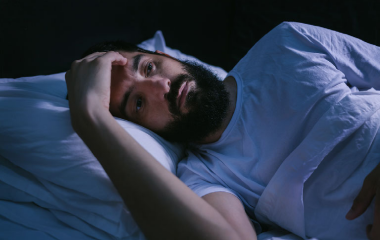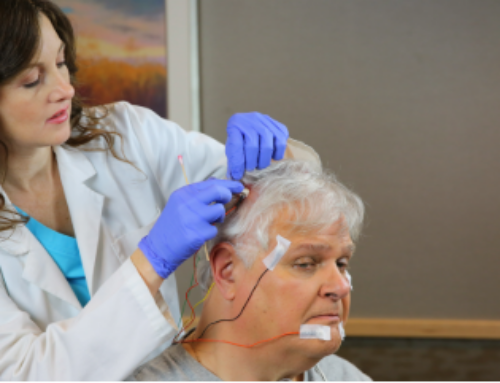Military members often see or experience traumatic events in the line of duty. This makes active-duty military personnel and veterans more susceptible to experiencing nightmares and abnormal sleep behaviors.
Now, researchers are proposing a unique new sleep disorder — Trauma Associated Sleep Disorder, or TSD — to characterize sleep disturbances in trauma survivors.
What is trauma associated sleep disorder?
Trauma survivors often report having nightmares and disruptive nocturnal behaviors. Currently, there is no diagnosis that accurately captures the sleep disturbances experienced by trauma survivors.
TSD is a proposed sleep disorder that includes the following symptoms:
- Nightmares that are replays of traumatic experiences
- Disruptive nocturnal behaviors, such as vocalizations, screaming, sleepwalking, or combative behaviors that may injure bed partners, such as punching, kicking, or significant restlessness
These behaviors are similar to what is observed in REM sleep behavior disorder (RBD). However, people with RBD are usually older and may have Parkinson’s Disease or other similar disorders.
People with symptoms of TSD may also have symptoms of posttraumatic stress disorder (PTSD).
Researchers studied four cases of TSD in young, active-duty army soldiers. In each case, they did not have sleep disturbances before their traumatic experiences. Evaluation in a sleep lab allowed researchers to document their nightmares and nocturnal behaviors.
TSD is not yet classified as an official sleep disorder at this time. Researchers are gathering and reviewing evidence to better understand the symptoms experienced by trauma survivors.
How is TSD diagnosed and treated?
To make a diagnosis, a sleep doctor would ask you about your nightmares, nocturnal behaviors, and your risk for PTSD. You may be asked:
- When did your nightmares begin and how frequently do they occur?
- What are your nightmares about?
- What type of nocturnal behaviors are you experiencing?
- When did your nocturnal behaviors begin and how often do they occur?
- Are your nocturnal behaviors triggered by anything?
- Have you or your bed partner experienced any injuries resulting from your nocturnal behaviors?
- Did you experience trauma recently or in the past that may influence your dreams and nocturnal behaviors?
- Are you taking any new medications?
It may be recommended that you keep a sleep diary to better understand what is disturbing your sleep. If your doctor believes that you may have RBD, you may be recommended to undergo a sleep study.
Treating TSD may be similar to treating nightmare disorder. If you also have PTSD, treatment may be recommended for that as well.
Be mindful of your safety at night. Keep weapons away from the bed. Consider adding padding to bedside tables to prevent injuries.
In summary, combat veterans and trauma survivors may experience nightmares or disruptive nighttime behaviors. These behaviors may be indicative of TSD, a proposed sleep disorder. If your sleep is disrupted by these symptoms, seek help from your primary care doctor at Veterans Affairs or use the AASM sleep center directory to find an accredited sleep center near you.
Medical review by Reeba Mathew, MD FCCP
Authored by:
Kate Robards





